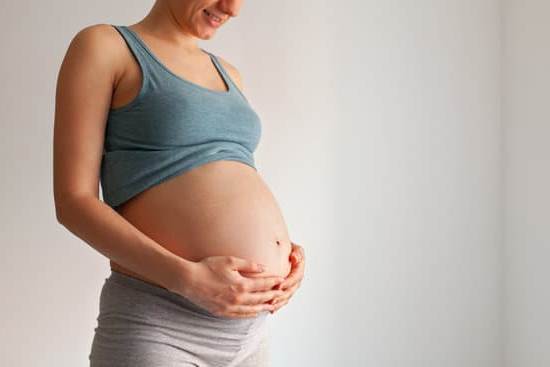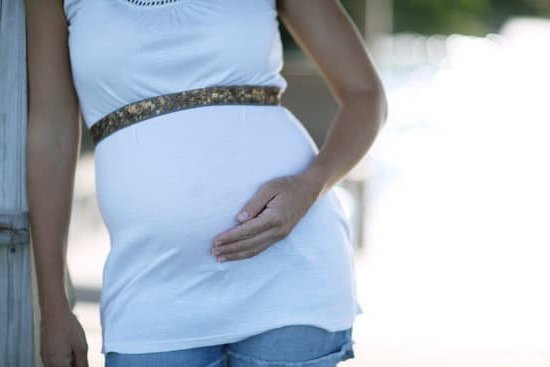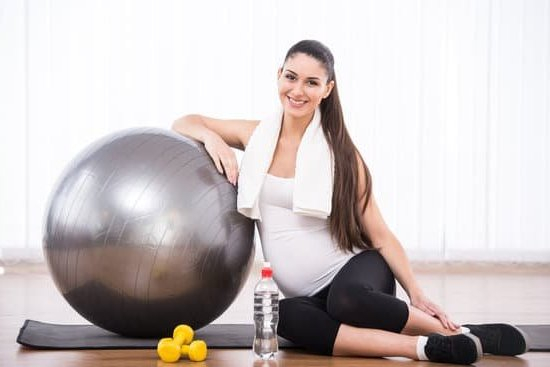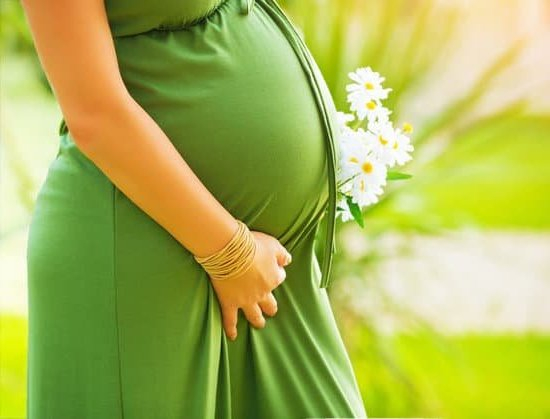Pregnancy is a time of tremendous change for a woman’s body, and with that change often comes discomfort and stress. It’s no wonder, then, that many expectant mothers turn to pregnancy massage as a way to alleviate these symptoms and promote overall well-being. In this section, we will explore the numerous benefits of pregnancy massage, including its ability to alleviate back pain, reduce stress, improve sleep, and enhance a woman’s sense of well-being during pregnancy.
During pregnancy, many women experience back pain due to the added strain on their bodies. Pregnancy massage can be incredibly effective in addressing this discomfort by targeting specific areas of tension and providing relief.
Additionally, the stress-reducing benefits of pregnancy massage are well-documented, making it an ideal way for expectant mothers to unwind and relax during a time of heightened emotional and physical stress. Improved sleep is another notable benefit of pregnancy massage, as the relaxation and relief it provides can help women achieve better quality rest during pregnancy.
In addition to physical benefits, pregnancy massage can also have a positive impact on an expectant mother’s overall sense of well-being. By taking the time to focus on self-care and relaxation, women can feel more centered and connected to their bodies during this transformative time. Overall, pregnancy massage offers numerous benefits that can greatly enhance the experience of pregnancy for many women.
Safety Precautions
When considering a pregnancy massage, it is important to keep in mind the safety precautions and considerations to ensure the well-being of both the mother and the baby. One of the most critical factors is choosing a qualified and experienced massage therapist who specializes in pregnancy massage. It is essential to find a therapist who understands the specific needs and concerns of expectant mothers and who has received proper training in prenatal massage techniques.
Consulting With a Healthcare Provider
Before scheduling a pregnancy massage, it is crucial for expectant mothers to consult with their healthcare provider. This step is especially important for women with high-risk pregnancies or certain medical conditions. By obtaining clearance from their healthcare provider, expectant mothers can ensure that they are receiving safe and appropriate care during their pregnancy.
Choosing the Right Massage Technique
Pregnancy brings about numerous changes in a woman’s body, so it is important for the massage therapist to use techniques specifically tailored for expectant mothers. Avoiding deep tissue massages or any techniques that involve strong pressure on the abdomen area is essential for ensuring safety during pregnancy. Instead, gentle and soothing techniques such as Swedish massage or prenatal massage are typically recommended for pregnant women.
Proper Positioning During Massage
During a pregnancy massage, proper positioning is crucial to ensure comfort and safety for both the mother and the baby. The use of supportive cushions or pillows can help maintain proper alignment and relieve any discomfort from lying on one’s side. It’s important for pregnant women to communicate openly with their massage therapist about any discomfort or concerns during the session, so adjustments can be made as needed.
Best Practices for Pregnancy Massage
When it comes to pregnancy massage, there are some best practices to keep in mind in order to fully enjoy and benefit from the experience. Here are some tips and guidelines for getting the most out of a pregnancy massage:
- Choose the Right Position: During a pregnancy massage, it’s important to find a comfortable and safe position to lie in. Many expectant mothers find that lying on their side with supportive cushions provides the best comfort and allows for proper circulation.
- Communicate with Your Massage Therapist: Be sure to communicate with your massage therapist about any areas of discomfort or specific concerns you may have. They can tailor the massage to address your individual needs and ensure your comfort throughout the session.
- Use Supportive Cushions: Utilizing supportive cushions during a pregnancy massage can help alleviate pressure on certain areas of the body, such as the lower back and hips. This can make the experience more relaxing and effective for reducing tension and discomfort.
In addition to these tips, it’s important for expectant mothers to prioritize self-care both during and beyond their pregnancy massages. This includes incorporating practices such as gentle stretching, staying hydrated, practicing deep breathing exercises, and getting adequate rest. By combining these self-care practices with pregnancy massage, expectant mothers can support their overall well-being throughout their pregnancy journey.
Ultimately, taking the time for self-care during pregnancy is not only beneficial for physical health but also contributes to emotional well-being. Pregnancy massage serves as a valuable tool in this self-care routine, offering relief from common discomforts associated with pregnancy while providing an opportunity for relaxation and rejuvenation. With proper guidance and consideration of best practices, expectant mothers can make the most out of their pregnancy massage experiences.
Common Concerns Addressed
When it comes to pregnancy massage, many expectant mothers have concerns and misconceptions about its safety and potential impact on their baby. However, it’s essential to address these common concerns to provide clarity and reassurance for those considering this type of therapy.
Is Pregnancy Massage Safe During Different Stages of Pregnancy?
One of the most common concerns about pregnancy massage is whether it’s safe during all stages of pregnancy. Many women worry that certain massage techniques or pressure points could potentially harm their developing baby.
The good news is that, with proper precautions and a qualified therapist, pregnancy massage can be safe throughout all three trimesters. However, it’s crucial for expectant mothers to communicate openly with their massage therapist about their specific stage of pregnancy and any associated health concerns.
How Can Pregnancy Massage Impact the Baby?
Another concern that expectant mothers may have is how pregnancy massage can impact their baby. The truth is that, when performed by a skilled and experienced therapist, pregnancy massage should not have any negative effects on the baby.
In fact, some studies suggest that the relaxation and stress-reducing benefits of pregnancy massage may even have a positive impact on fetal development. It’s essential for pregnant women to seek out a licensed prenatal massage therapist who understands the unique needs and considerations of expectant mothers.
By addressing these common concerns and misconceptions about pregnancy massage, expectant mothers can feel more confident in exploring this beneficial therapy as part of their prenatal care routine. With the right precautions, guidance from a qualified therapist, and open communication about any specific concerns or needs, pregnancy massage can contribute to an overall sense of well-being during this special time.
Types of Pregnancy Massage
Pregnancy is a period when women experience various physical and emotional changes. It is important for expectant mothers to take care of their well-being, and one way to do so is through pregnancy massage. There are different types of pregnancy massage, each offering unique benefits tailored to the specific needs of pregnant women.
- Swedish Massage: This type of massage is known for its relaxation benefits. It involves long, gliding strokes combined with kneading and friction techniques to improve blood circulation, reduce muscle tension, and promote overall relaxation. Swedish massage can be particularly beneficial for expectant mothers who are experiencing stress or anxiety during their pregnancy.
- Prenatal Massage: Prenatal massage is specifically designed for pregnant women, focusing on addressing the discomforts associated with pregnancy such as back pain, swollen limbs, and fatigue. The techniques used in prenatal massage are modified to ensure the safety and comfort of both the mother and the baby. Prenatal massage can also help in reducing joint pain and improving sleep quality in pregnant women.
- Reflexology: Reflexology is a type of massage that applies pressure to specific points on the feet, hands, or ears which correspond to different organs and systems within the body. For pregnant women, reflexology can be used to alleviate common pregnancy discomforts such as nausea, headaches, and digestive issues. It can also promote relaxation and reduce stress levels during pregnancy.
When considering a pregnancy massage, it’s crucial to consult with a qualified and experienced massage therapist who specializes in prenatal care for expectant mothers’ safety and well-being.
| Type of Pregnancy Massage | Benefits |
|---|---|
| Swedish Massage | Relaxation, improved blood circulation |
| Prenatal Massage | Pain relief, improved sleep quality |
| Reflexology | Alleviation of common pregnancy discomforts |
It’s essential for pregnant women to explore these different types of pregnancy massages depending on their individual needs during this crucial time in their lives.
Finding the Right Massage Therapist
When seeking a pregnancy massage therapist, it’s crucial to find someone who is not only qualified and reputable, but also specializes in prenatal massage. One way to start your search is by asking for recommendations from your obstetrician, midwife, or other healthcare providers. They may have a list of trusted massage therapists who are experienced in catering to the unique needs of pregnant women.
Another important consideration when looking for a pregnancy massage therapist is their qualifications and certifications. Look for someone who has received specialized training in prenatal massage and holds relevant certifications. This will ensure that they are knowledgeable about the specific techniques and safety precautions required for massaging expectant mothers.
In addition to qualifications, it’s essential to consider the environment in which the massage therapist practices. When visiting a potential massage therapist’s location, pay attention to hygiene standards and the overall ambiance of the space. A clean and calming environment can contribute to a more relaxing and enjoyable experience.
Finally, don’t hesitate to ask the prospective therapist about their experience working with pregnant clients. Inquiring about their familiarity with different stages of pregnancy and any potential complications can help you determine whether they are the right fit for your needs.
| Consideration | Guidance |
|---|---|
| Recommendations from Healthcare Providers | Ask your obstetrician or midwife for referrals |
| Qualifications and Certifications | Look for specialized training in prenatal massage and relevant certifications |
| Environment Standards | Assess cleanliness and ambiance of the massage therapist’s practice space |
Self-Care Tips for Expectant Mothers
In conclusion, pregnancy massage can be a valuable tool for expectant mothers to alleviate the physical and emotional stress that often comes with pregnancy. With its ability to ease back pain, reduce stress, improve sleep, and promote overall well-being, pregnancy massage can offer numerous benefits for both the mother and the baby.
However, it’s important for pregnant women to take safety precautions and consider the expertise of a qualified and experienced massage therapist when seeking out this type of therapy.
To make the most out of a pregnancy massage, it’s essential for expectant mothers to prioritize their comfort during the session. This includes using supportive cushions, finding the best lying positions, and communicating openly with the massage therapist about any discomfort or specific needs. By being proactive in creating a comfortable environment, pregnant women can fully relax and reap the benefits of the massage.
In addition to getting regular pregnancy massages, expectant mothers can enhance their self-care routine by incorporating practices such as gentle exercise, healthy nutrition, mindfulness meditation, and staying hydrated. By taking care of their physical and mental well-being through these complementary practices, pregnant women can further support their overall health throughout this special time. Ultimately, combining pregnancy massage with self-care rituals can help expectant mothers feel more relaxed and at ease as they prepare for motherhood.

Welcome to my fertility blog. This is a space where I will be sharing my experiences as I navigate through the world of fertility treatments, as well as provide information and resources about fertility and pregnancy.





